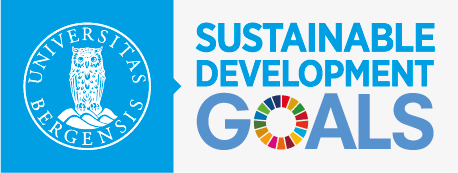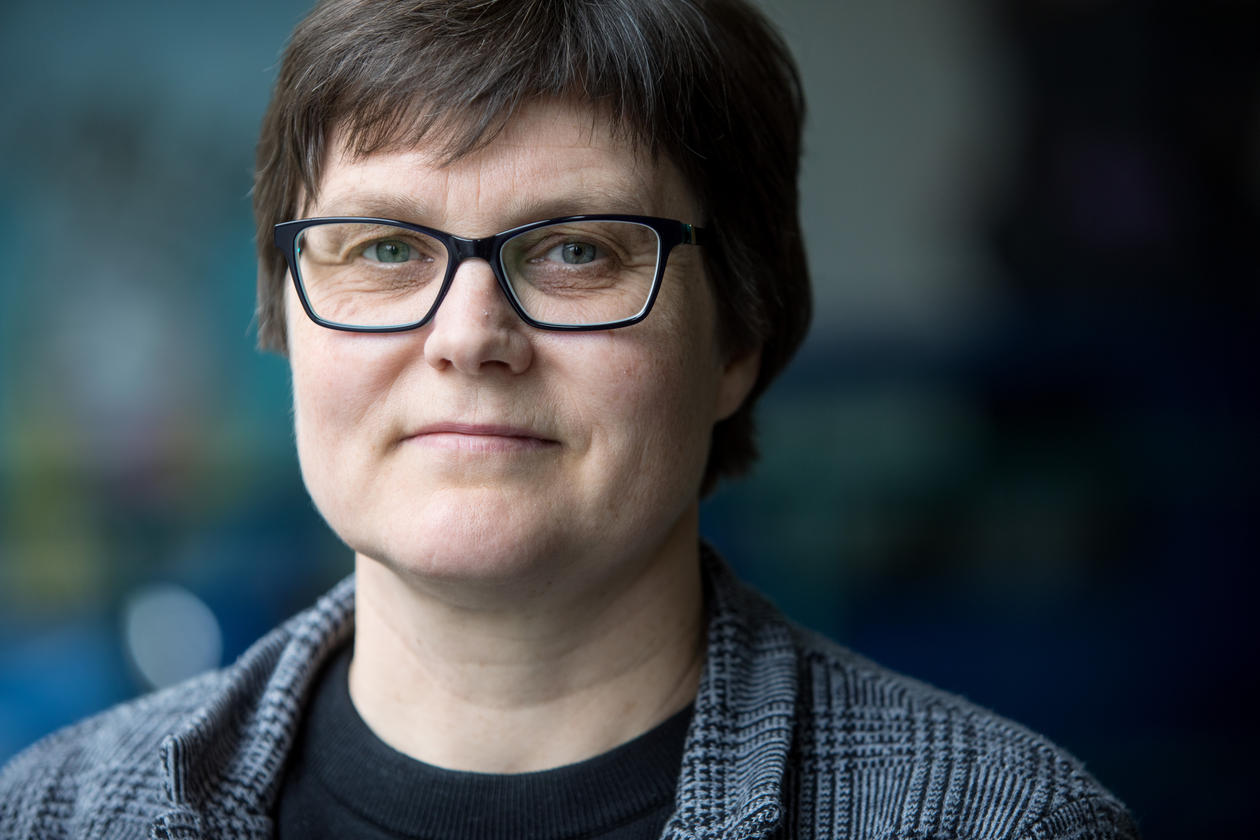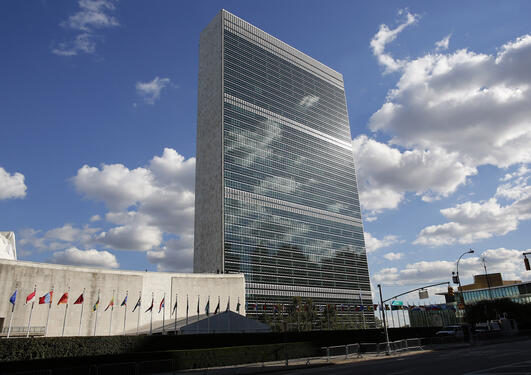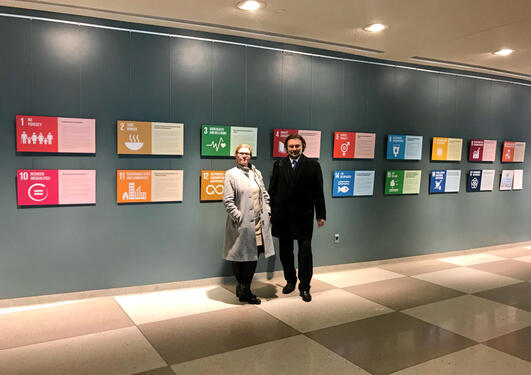Bringing actionable knowledge to the UN
How can research and higher education help accelerate the transformation to sustainable and just societies?

Main content
The University of Bergen (UiB) contributes to Norway’s official side event at the United Nations High-Level Political Forum. The side event, “Global Agenda for SDG7 Action”, takes place on Wednesday 11 July and is organised by Norway’s Ministry of Foreign Affairs.
In consultation with the Ministry and Norway’s Permanent Mission to the United Nations, SDG Bergen framed the university’s specific contribution in terms of the Centre for Climate and Energy Transformation's (CET) involvement in the SDG 7 Policy Briefs.
From the hyperlocal to the global
When the interdisciplinary CET centre opened at UiB in October 2017, it included a long-standing engagement with the Sustainable Development Goals (SDGs).
“We are engaged in societal crossroads, trying to better understand how to meet the ambitious goals we as a society have set for ourselves in terms of sustainable transformation,” says Professor and CET's Director Håvard Haarstad.
According to him, the fundamental questions are simple: “How do we get there? What policies are effective? What factors will trigger rapid change?”
Working with politicians, public officials, industry and civil society at all levels from the hyperlocal to the United Nations (UN) underlines CET's broad and ambitious scope.
“The need for more research to find solutions and how society handles climate-related problems is at the core of CET. Being in dialogue with societal actors improves the research we do and makes our work more relevant to decision-makers,” Haarstad observes.
Haarstad and the CET team recently published an article on the role for social scientists in accelerating sustainable energy transformations.
Research for a sustainable world
CET’s engagement with the Sustainable Development Goals (SDGs) has resulted in several immediate outputs. In spring 2018 the centre contributed to two policy briefs in a larger collection of 27 briefs entitled “Accelerating SDG7 Achievement”, produced by the UN’s Department of Economic and Social Affairs (UN DESA) and building the science base for SDG7: Affordable and Clean Energy.
At the HLPF in July, CET will co-organise a training workshop for UN DESA on innovative research and education as well as participate in the official Norwegian side event.
“What roles can social scientists play in accelerating sustainable energy transformations? This is a question we discuss a great deal at CET. It ties in with our key objective of actionable knowledge and providing scientific advice to decision-makers,” says Postdoctoral Fellow Siddharth Sareen, who was CET's main contributor to the policy briefs.
Researchers from CET are presenting key content related to the policy briefs, on interlinkages among energy, poverty and inequality, and on decentralised renewable energy.
“SDG7 aims to ensure access to affordable, reliable, sustainable and modern energy for all by 2030. At CET we work closely on energy governance, and can bring useful competences to the HLPF. We look forward to contributing in ways that can have a constructive impact on future decision-making,” says Sareen.
Accelerating action on SDGs
The training workshop at HLPF is co-organised by CET with the UN and leading SDG-oriented universities worldwide. The purpose is to move forward in finding innovative ways of conducting collaborative research and education.
“There is growing interest in how universities can contribute to the SDGs. We will draw from CET's experience in creating partnerships between universities and society but also between researchers and students,” says PhD Candidate Jakob Grandin, who has co-founded the UiB Collaboratory to bring together students and researchers to work on sustainability issues.
CET contributed actively to the inaugural SDG Bergen Conference in February 2018 and arranged the first annual Bergen International Students Conference in April.
“Academia needs to step up its efforts to design education around sustainability issues. The SDGs are a great way to mobilise interdisciplinary collaboration because they concern everyone," says Grandin, who is in charge of CET's contribution to the workshop.
Positioning on renewable energy research
UiB's director for energy research, Kristin Guldbrandsen Frøysa, works closely with CET. She is also involved in Bergen Energy Lab, a forum for exchange of information on research results and activities related to renewable energy and energy transition. Siddharth Sareen of CET is head of the Lab's programme committee.
“I believe it is important for the University of Bergen to position itself on SDG7 and renewable energy,” says Guldbrandsen Frøysa, who will also be travelling to the HLPF to represent the university.
She is enthusiastic about CET's contributions to the two policy briefs towards SDG7 at the HLPF.
“This shows that we actively participate in putting sustainability at the heart of our research and education. In this respect CET is an outstanding example and it will be exciting to attend both the workshop they are involved in and their participation in the official Norwegian side event at the HLPF.”



